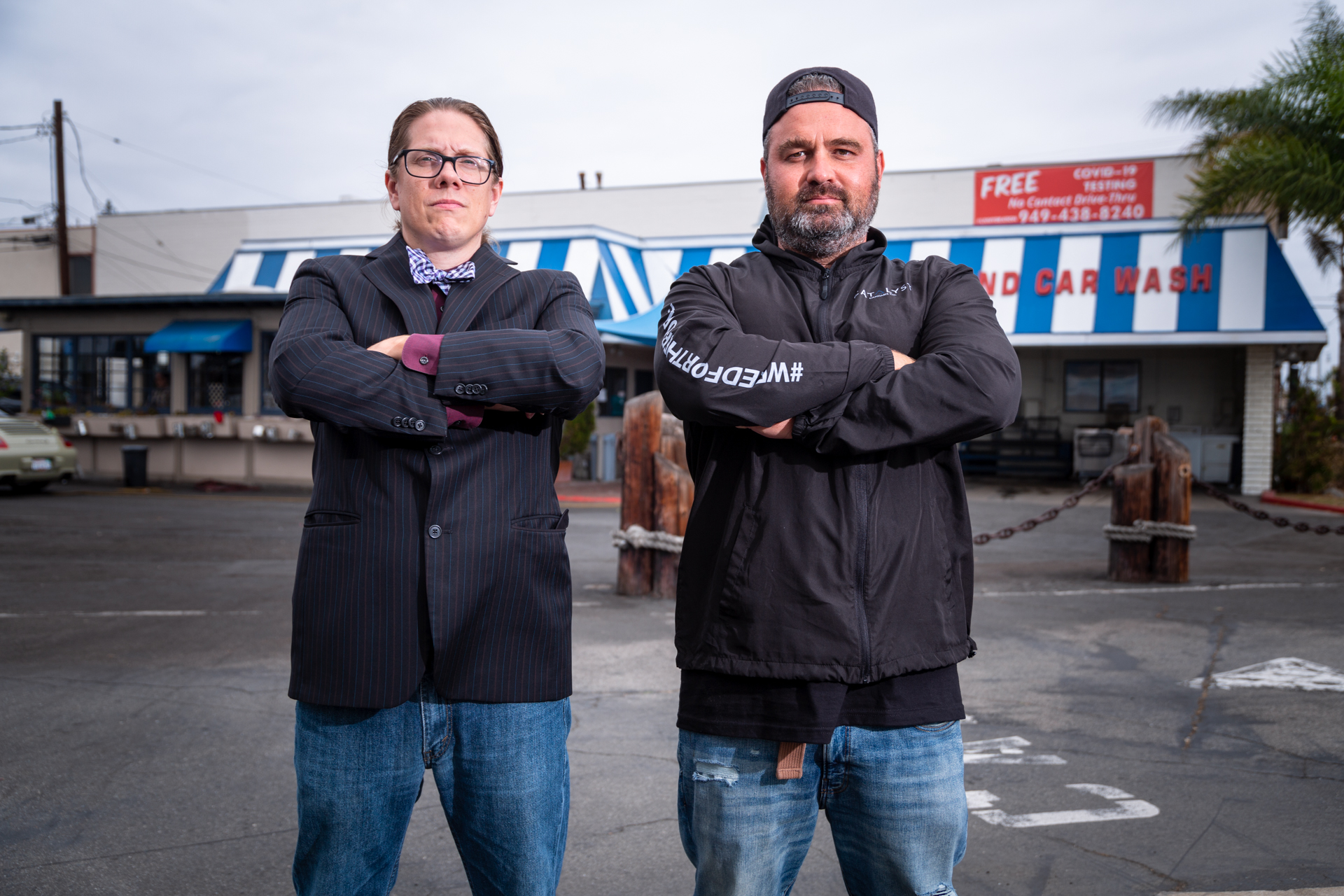Hopes high in Beach Cities for retail pot pioneers – Easy Reader
In 2017, Hermosa Beach, Manhattan Beach, and Redondo Beach each banned retail sales of cannabis, joining a third of California cities – about 162 — with prohibitions.
Catalyst Cannabis Co. is seeking to lift the local bans through the initiative process. Last week, the Los Angeles County-Recorder certified the company’s signature gathering effort for an initiative that would allow three cannabis stores in Redondo Beach.
The company has announced its intention to launch similar initiative efforts in Hermosa Beach, Manhattan Beach and El Segundo.
Like Redondo’s City Council, (see related story page 14), Hermosa Beach officials are considering drafting an ordinance to compete with the Catalyst initiative, one that would more “favorably serve” the city’s needs, according to officials. A citizens’ committee is being formed to help draft the ordinance.
Catalyst CEO Elliot Lewis said his company would like to see cities move more quickly on licensing retail shops, but “sooner rather than later, there will be cannabis shops in the South Bay.”
“Every city we’ve ever opened in loves us,” Lewis said. “Whether it’s been contentious or not, we’re always the favorite operator.”
Catalyst uses “local people” in a community to be the public face of its initiative campaigns. They are “often friends of ours, or a customer who is interested in advancing legal sales. And they are never paid – not even with a little weed,” Lewis said. “We are very strict about following the rules.”
The company was formed in 2015 by Lewis, his wife, his brother, and attorney Damian Martin. Lewis said he became the company’s CEO “probably because I was first in. I’m not really sure I’m mature enough to be the boss.”
Today the company has 10 dispensaries — four in Long Beach, and one each in Santa Ana, Bellflower, Florence, El Monte, Pomona and Marina. At least one new opening a year is anticipated.
Lewis, a self-effacing, 43-year-old family man from Long Beach, admits some people have described him as “the fat-faced, obnoxious guy.” He said that “doesn’t really bother me.” He’s not inclined to filter his comments, and is prone to descriptive expletives.
He’s driving, on a car phone, and with time to discuss his favorite topic: competing with “the big guys” for limited opportunities to acquire cannabis retail licenses.
“I just really enjoy the game. I think license hunting is exciting,” he said. “Right now, I couldn’t think of anything on the face of this earth I’d rather be doing. It’s a brand-new industry. It’s super dynamic. It’s always changing. It’s street by street, block by block.’
Lewis described the company business model as simple: raise a little money, compete successfully for a city’s retail pot license, open a shop “with quality people” and move on to the next opportunity.
“Some folks say we’re ruthless, and we are — within the framework of the rules — when it comes to winning a license,” he said. “I’ve been quoted as calling it ‘blood sport.’ There’s a lot of strategy that goes into it, a lot of different pieces to it. It’s just really, really exciting.”
Lewis was quick to point out that “we don’t engage in any cronyism, backroom deals, bribery, or anything like that. We are really careful to keep it above board, but we’re fierce competitors.”
Lewis described partner Martin as “a stone cold killer, too, when we’re trying to win these licenses.”
Retail pot is a top-heavy industry, he noted. Most entities with which he competes operate with millions, and sometimes billions, of dollars. Catalyst has a “small pool of mom-and-pop investors” and will raise “a hundred or two hundred thousand dollars at a time” for individual projects.
“We’ve been winning (licenses) about 80 percent of the time,” Lewis said, which lessens the risk for investors. “We put up 100 grand knowing we might get something that’s worth five million dollars or so, and maybe a lot more.”
Lewis said the company is determined to “stay local.”
“There are 99 cities in the county of Los Angeles. Maybe 10,11 of them have gone legal. There are 34 cities in Orange County. Only one of them has gone legal. There is so much to be done here,” he told podcaster TG Branfalt last year. “If we keep moving, who knows what the end number is? Forty, eighty, one hundred licenses? We’re just growing this organically, trying to make a strong presence here in Southern California.”
“I think whoever wins California, their brand is going to be able to migrate (to out-of-state locales),” he said.
The company has about 250 employees, all are unionized. Executives make only slightly more than the lowest-paid workers. Lewis doesn’t take a salary. He does get health care and makes “a small living” from a couple of small properties he bought years ago.
“I like to make a little bit of money,” said Lewis. “But it’s not really a money thing, right? You know, I really enjoy the sport of it. We’re basically on the precipice of the major cannabis companies being developed right now that will stand the test of time.”
Despite market analysts describing cannabis stocks as “massively downbeat” in 2021, it is an incredibly profitable industry. The website seattletimes.com reported recently that legal cannabis sales in the United States will surpass $30 billion in 2022, with anticipated profits topping 20 percent. ER
comments so far. Comments posted to EasyReaderNews.com may be reprinted in the Easy Reader print edition, which is published each Thursday.
Post Your Promotion Here For Free
(310) 467-4723
by Nick’s Dojo – 18 hours ago
by Easy Reader Newspaper – 1 month ago
(310) 326-1167
by South Bay Film Society – 4 months ago
(800) 570-5562
by spybase – 4 months ago
by PVPHSABC – 8 months ago
(424) 225-2050
by Soroptimist International of Manhattan Beach – 10 months ago
323-867-9966
by COPPERTINO AND ASSOCIATES CONSUL – 1 year ago
(310) 293-2579
by Soroptimist International of Manhattan Beach – 1 year ago
(310) 849-3034
by Malibu Dana – 1 year ago
(424) 257-6700
by Kumon of Redondo Beach South – 1 year ago
View More
Thanks for subscribing!
Advertise
Pick-up Locations
Legal Notices
Contact Us
Print Issue Archive
© 2022 Easy Reader. All Rights Reserved.




